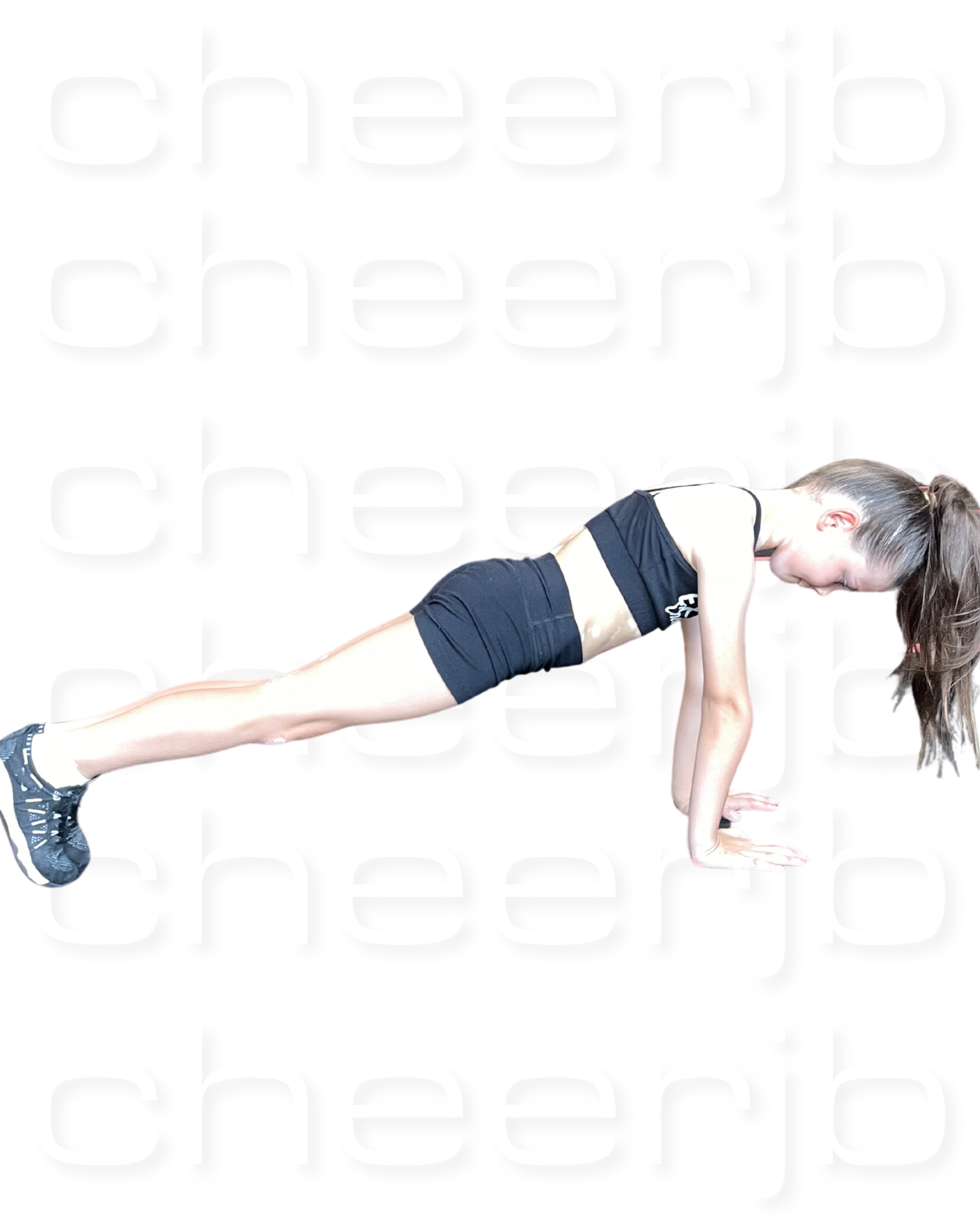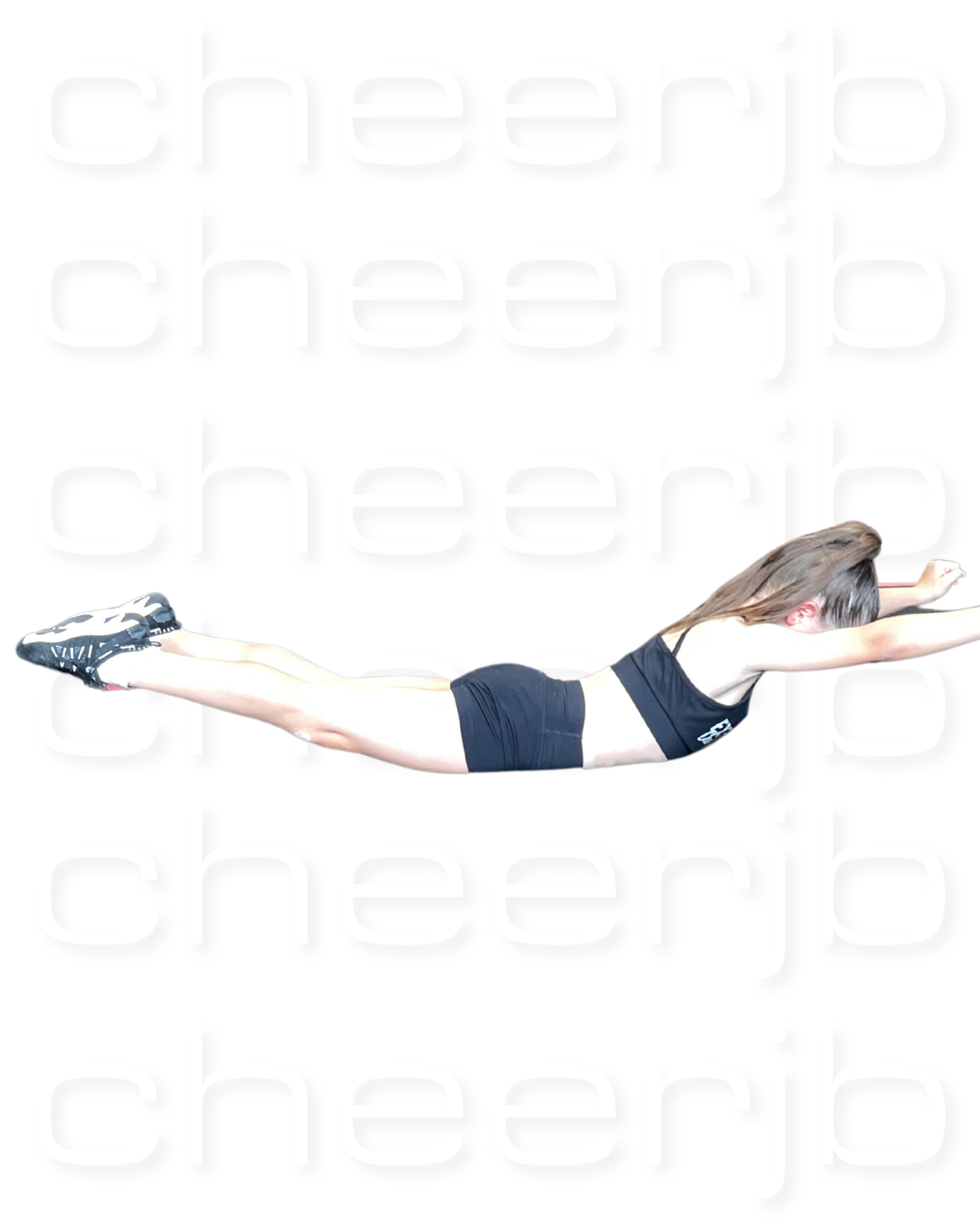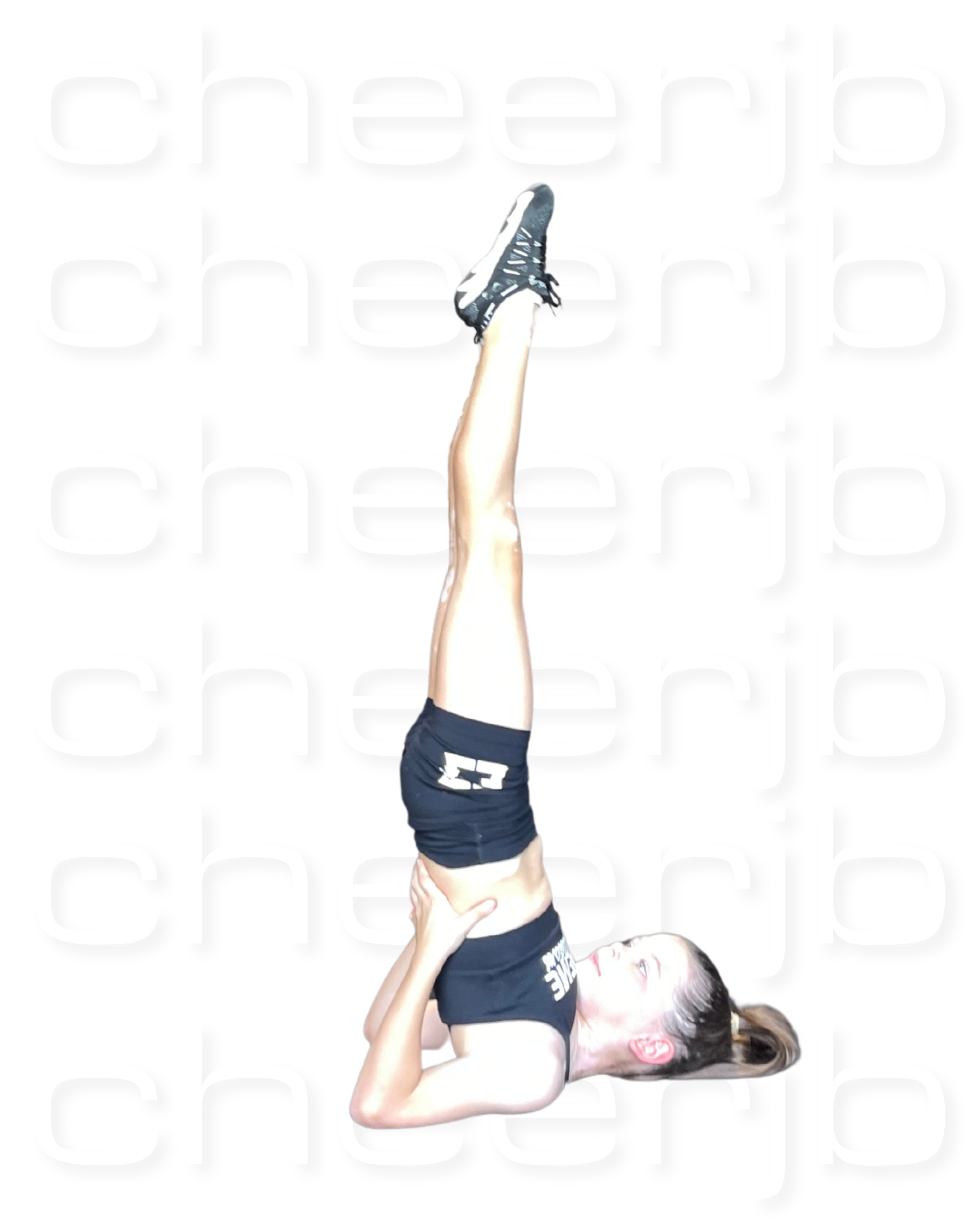Your foundation begins here.
Why These Shapes Matter
Before tumbling, stunting, or jumping, athletes must first master how to control their body. These shapes are the foundational positions that every skill in cheerleading is built upon.
Training them consistently leads to:
✔️ Cleaner technique
✔️ Stronger performance
✔️ Greater confidence
✔️ Reduced injury risk
Whether you’re an athlete or a coach, integrating these shapes into training is non-negotiable if you want lasting progress.
What You’ll Learn
In this lesson, you’ll develop strength and control in the following foundational shapes. Each one targets specific muscle groups and serves a unique purpose in performance. Think of them as the “blueprint” for everything else you will do in cheer.
The Key to Progress – Weekly Implementation
The most beneficial way to improve these shapes isn’t just understanding them—it’s repetition and consistency.
That means:
Practicing them every week
Implementing them at the top of practice before skills begin
Using structure:
• Hold each shape for 30–60 seconds
• Rotate through all shapes in sequence, 2–3 rounds
By doing this, athletes aren’t just learning shapes—they’re strengthening them, making them automatic, and creating muscle memory that carries directly into tumbling, stunting, and performance.
Bottom line: Shapes aren’t a one-time drill. They’re a habit. When consistently practiced, they become the silent strength behind every successful cheer skill.
L-Sit
Muscles Worked: Core, hip flexors, quads, shoulders
Purpose: Builds endurance and body control for jumps, tumbling, and stunting
Execution:
Sit with legs extended
Arms overhead
Hold with tight core and straight posture
Hollow Body Hold (Dish)
Muscles Worked: Core, hip flexors
Purpose: Reinforces tightness and stability for tumbling and twisting
Execution:
Lie on back
Lift shoulders and legs slightly
Keep lower back pressed to the ground
Rear Support
Muscles Worked: Glutes, hamstrings, shoulders
Purpose: Improves posture and control in stunts and landings
Execution:
Sit with hands behind hips
Lift hips into a flat tabletop
Engage glutes and shoulders
Front Support (Plank)
Muscles Worked: Core, shoulders, triceps
Purpose: Builds strength for handstands, tumbling, and control
Execution:
Push-up position
Body in a straight line
Engage core and avoid sinking hips
Superman Hold
Muscles Worked: Lower back, glutes, shoulders
Purpose: Develops back strength and full-body awareness
Execution:
Lie face down
Lift arms, chest, and legs
Squeeze glutes and hold
Side Plank (Left + Right)
Muscles Worked: Obliques, glutes, shoulders
Purpose: Enhances balance, twisting control, and stunt transitions
Execution:
Stack hips and shoulders
Lift hips straight
Extend arm or rest on hip
Candlestick
Muscles Worked: Core, hamstrings, glutes
Purpose: Aligns body for flips, tucks, and handstands
Execution:
Lie on back
Lift hips and legs into a vertical line
Support lower back if needed
Final Thoughts:
These are more than shapes — they’re your blueprint for strong, smart movement.
Mastering these positions builds the foundation for every elite cheer skill. Train them consistently. Prioritize technique. Watch your strength and confidence take off.
Your Next Steps:
Add 2–3 shape drills to every weekly session
Focus on full-body control and endurance
Use video or a mirror to refine technique
Repeat regularly to lock in the foundation
You're no longer just working out. You're training like an athlete. Let’s keep building.
— Josh






